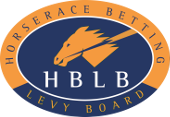Thursday 14th December 2017
Horserace Beting Levy Board Publishes Codes of Practice for 2018
The Horserace Betting Levy Board (HBLB) has published the 40th edition of the Codes of Practice on equine disease, in preparation for the 2018 equine breeding season. This will be available online only at codes.hblb.org.uk.
The online version may be accessed as a full document or as separate sections. It may be downloaded in pdf format for printing or viewing offline.
The free app, EquiBioSafe, will be updated shortly to reflect the latest amendments to the Codes.
Applying to all breeds of horse and pony, and to both natural mating and AI, the Codes are an essential guide for the prevention and control of equine diseases which represent a potential major threat to equine breeding:
- Contagious equine metritis (CEM)
- Equine viral arteritis (EVA)
- Equine herpesvirus (EHV)
- Equine coital exanthema (ECE)
- Equine infectious anaemia (EIA)
- Dourine
- Guidelines on strangles
- Guidelines on artificial insemination (AI)
For each disease there are sections which describe transmission and clinical signs, as well as advice on prevention, diagnosis and control of infection. The Codes explain the notification requirements that apply for the four diseases that are notifiable by law: CEM, EVA, EIA and dourine.
The Codes of Practice are reviewed annually by an expert Sub Committee of HBLB’s Veterinary Advisory Committee. The Sub Committee includes representatives of:
- Thoroughbred breeders in Britain, Ireland, France, Germany and Italy
- The non-thoroughbred sector
- Defra
- Equine veterinary practitioners
- Scientists expert in infectious disease.
Rob van Pelt, Chairman of the Codes of Practice Sub Committee, said:
“The 2018 version includes a couple of key additions: an explanation of the new arrangements for managing any CEM outbreak, as agreed between the industry and Defra; and advice to stallion owners on what to do while the supply of Equip Artervac is suspended.
“One further change is that the British Equine Veterinary Association (BEVA) has taken over responsibility for administering the Laboratory Registration Scheme. Labs will know this already. Mare owners should be aware that Mare Certificates will be available to download from www.beva.org.uk.
“2017’s outbreak in a training yard of EHV-1 in its neurological form served to remind us of the importance of vigilance. Sadly one horse died, but the situation could have been far worse if the right containment practices had not been put in place as quickly as possible.
“This is what the Codes are for. Infectious disease is an ever-present risk and it is in all our interests to work together and comply with the recommendations in the Codes.”
Further details on recent and current research on equine infectious diseases are available at racehorsehealth.hblb.org.uk.
For further information please contact Annie Dodd, HBLB Grants Manager, by email at annie.dodd@hblb.org.uk or by direct telephone on 020 7504 4014
